University Name - Journal 2: Conflict Analysis - Leadership Module
VerifiedAdded on 2022/09/25
|5
|923
|20
Journal and Reflective Writing
AI Summary
This journal entry analyzes a real-life conflict scenario between a couple experiencing stress due to work-from-home arrangements and reduced income. The student identifies the conflict as an example of ego and pseudo conflicts, highlighting the impact of differing expectations, power dynamics, and communication breakdowns. The analysis applies conflict theory, particularly focusing on competition for resources and the development of faulty assumptions. The student explores the concepts of ego depletion and self-control in the context of the conflict. The journal emphasizes the importance of acknowledging conflict-producing events, practicing effective listening, and seeking compromise to resolve disputes. The entry concludes by stressing the need for patience and positive energy in managing negative emotions and finding solutions that meet the needs of everyone involved. The student references relevant academic literature to support the analysis.
1 out of 5
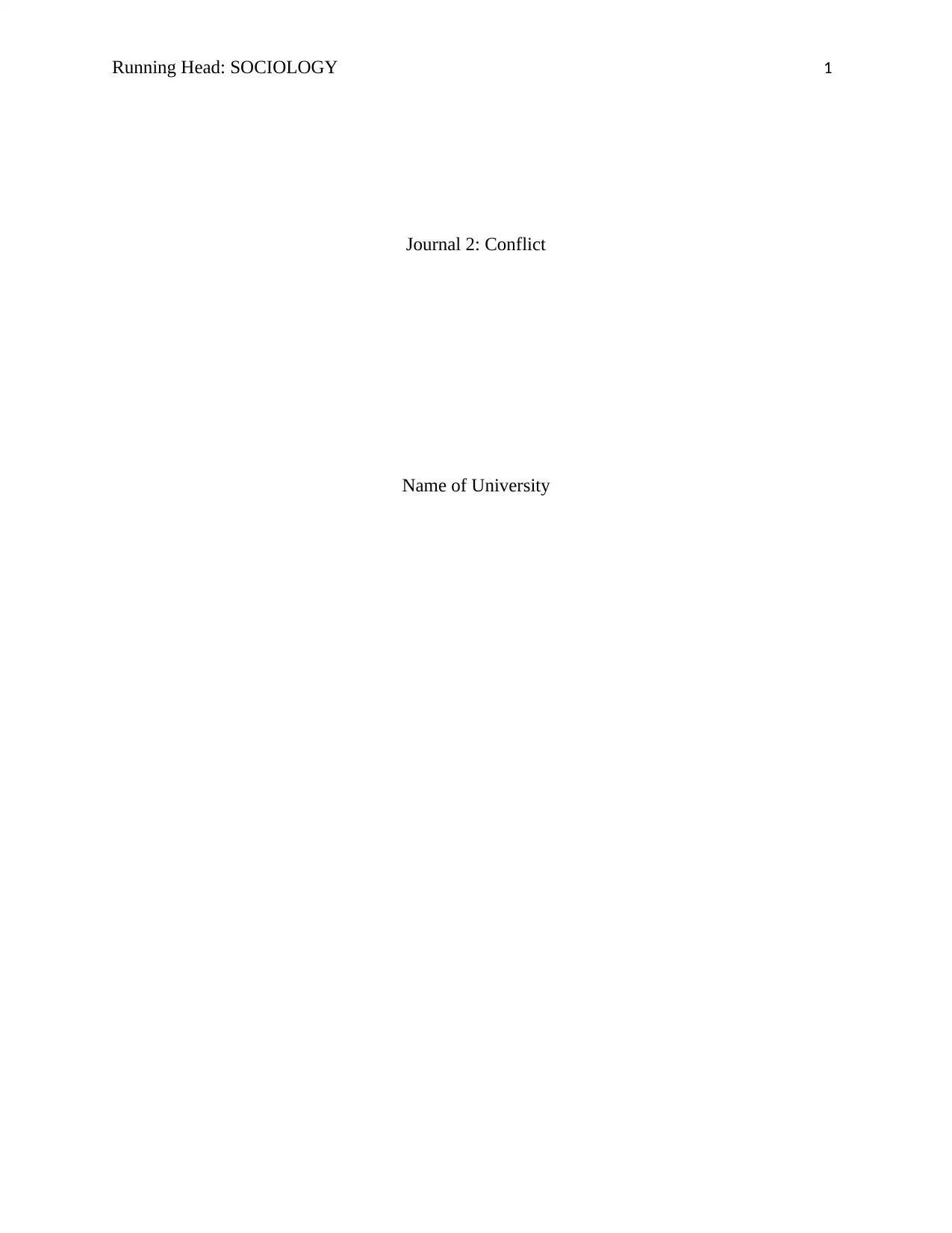
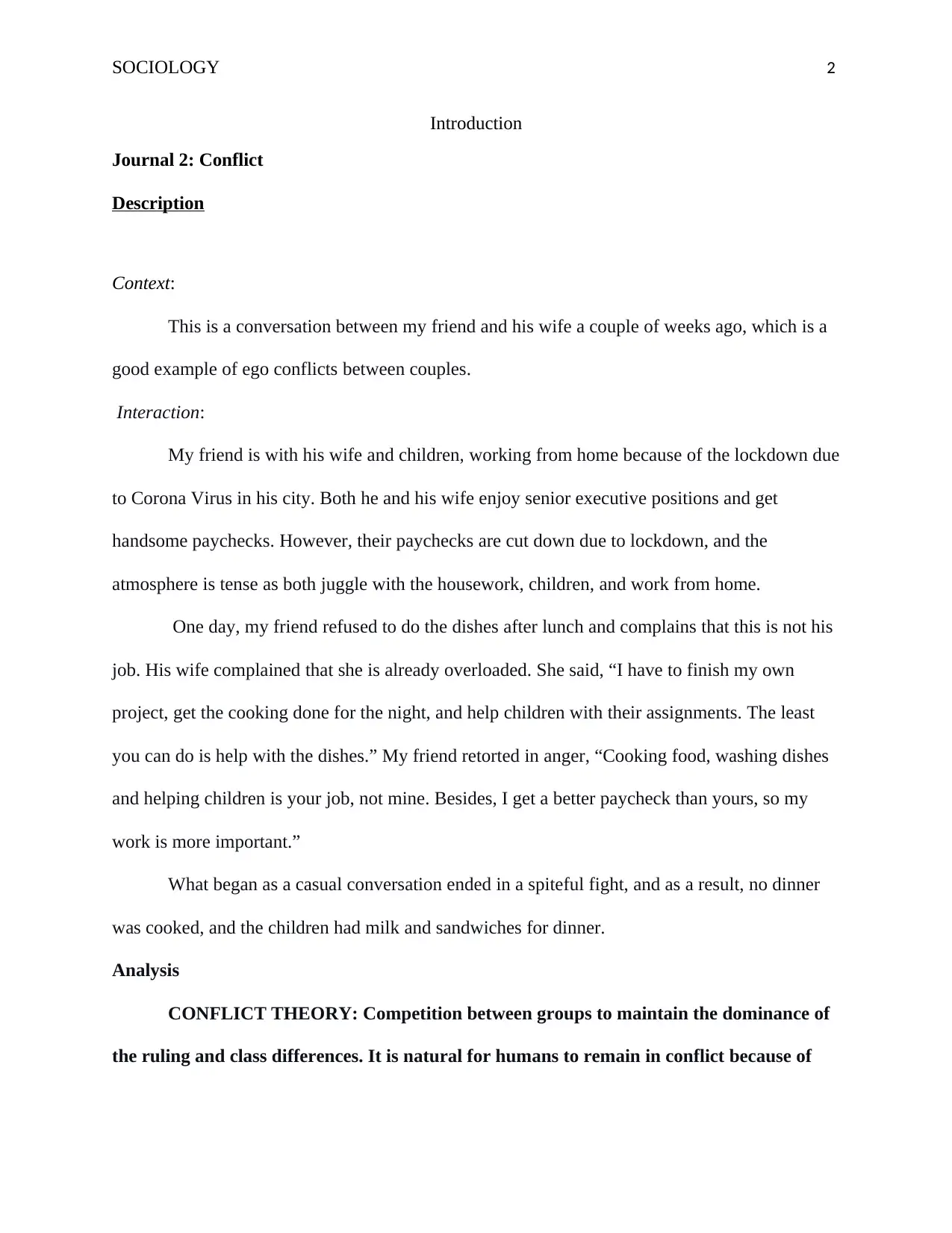
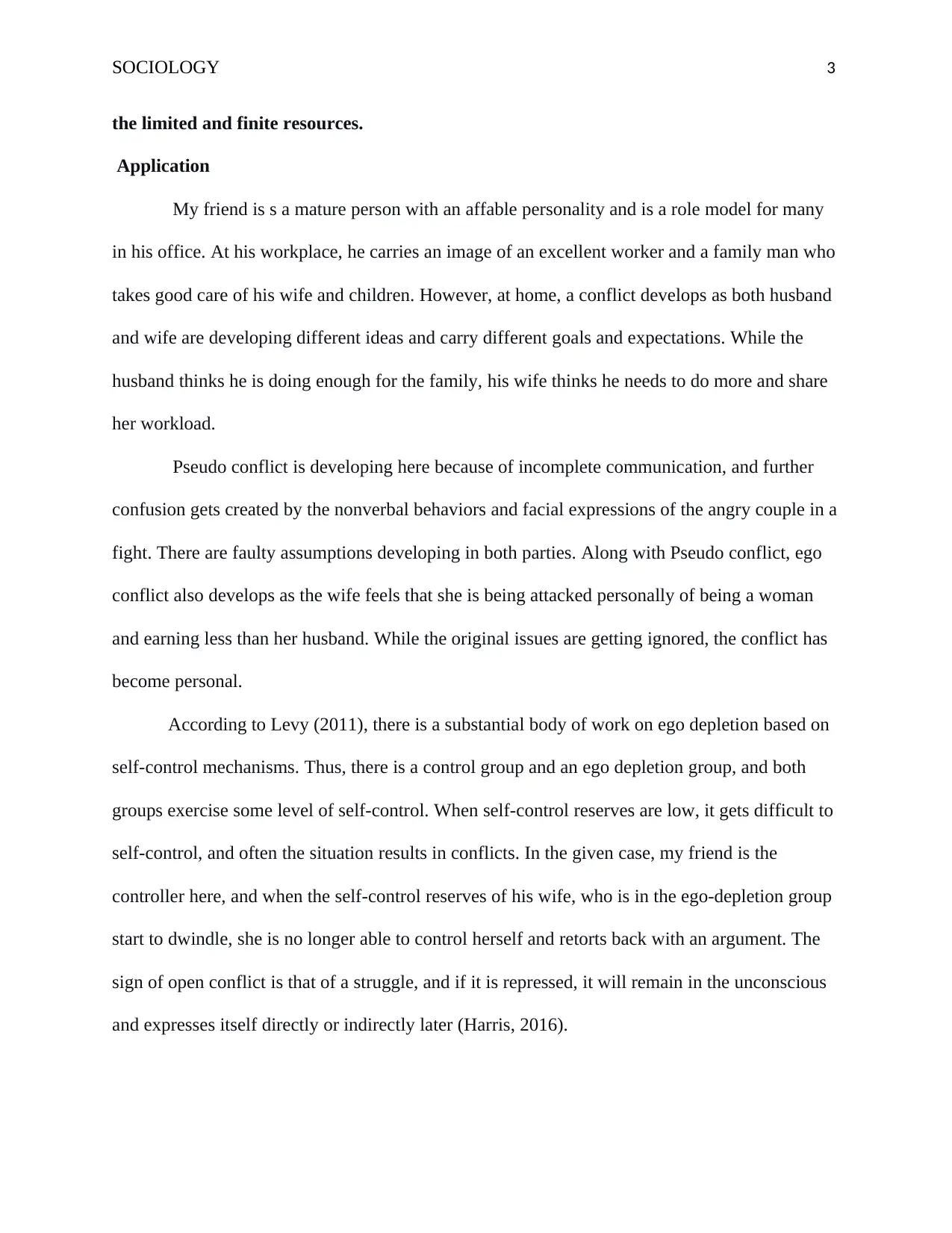

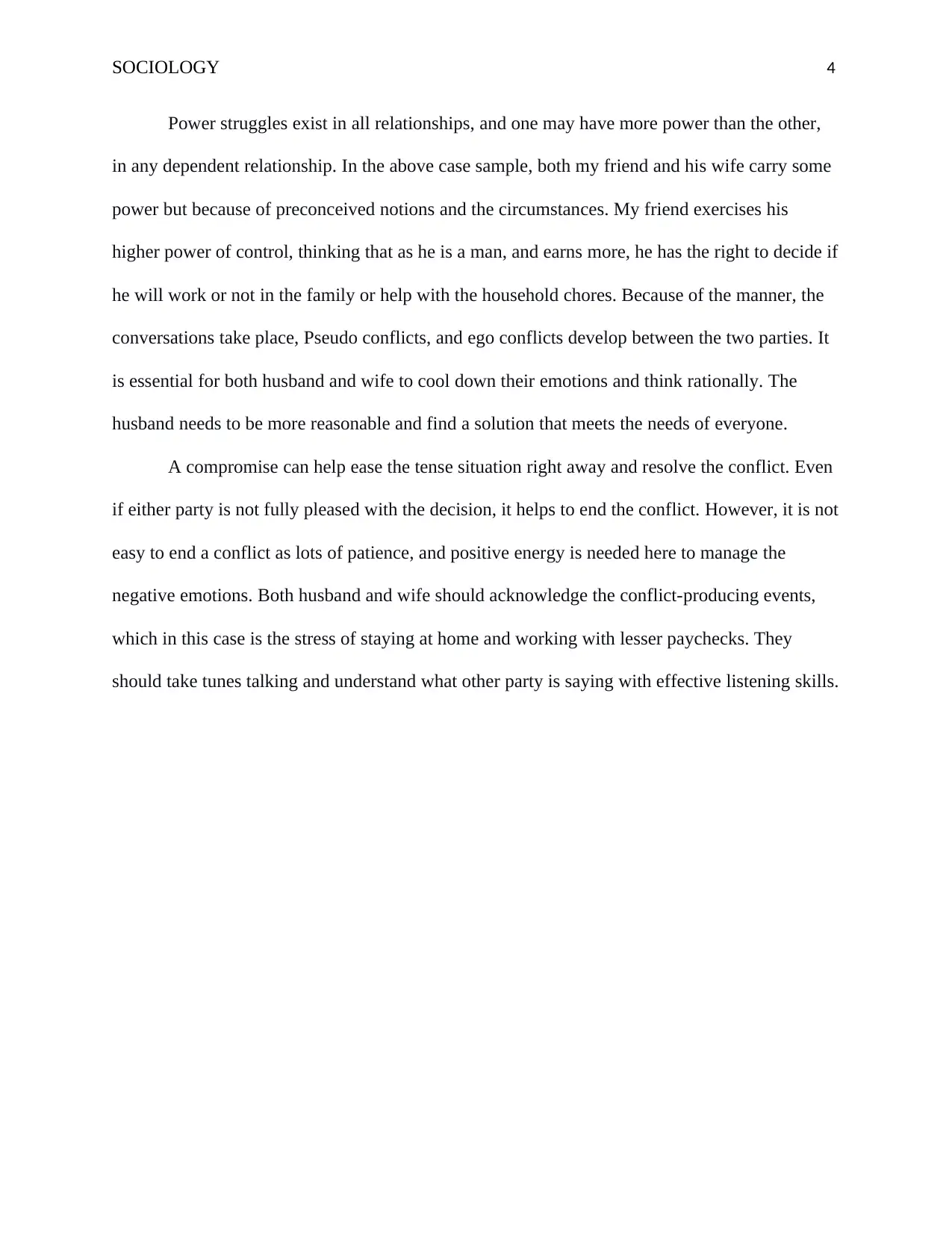
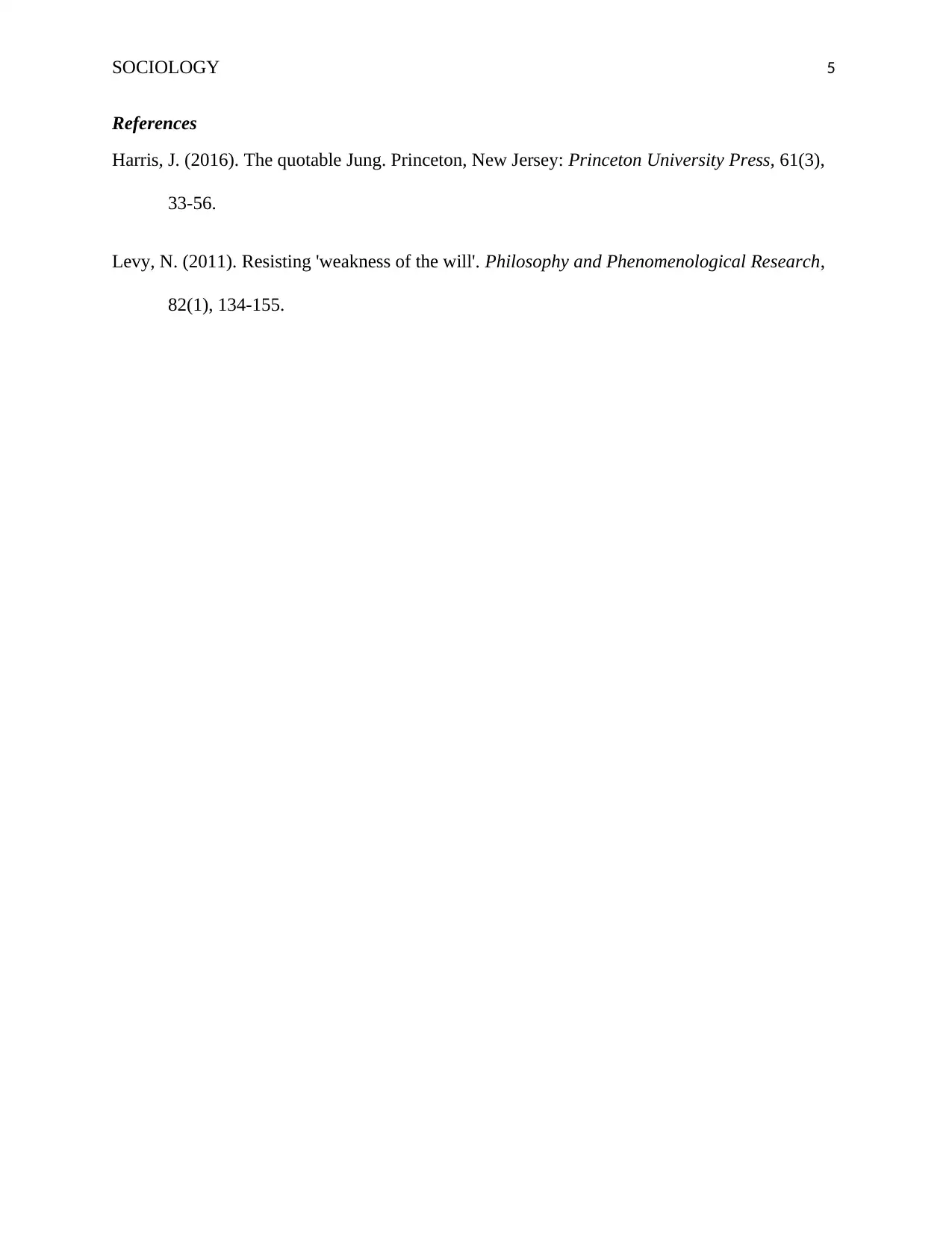



![[object Object]](/_next/static/media/star-bottom.7253800d.svg)